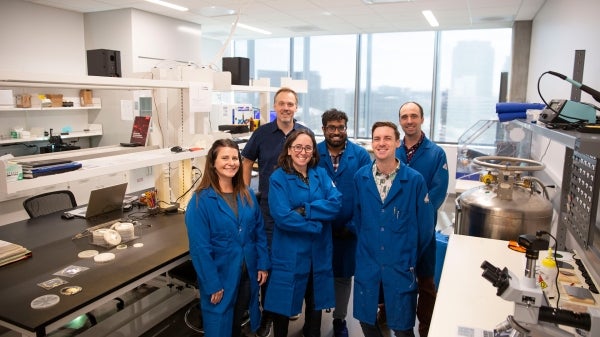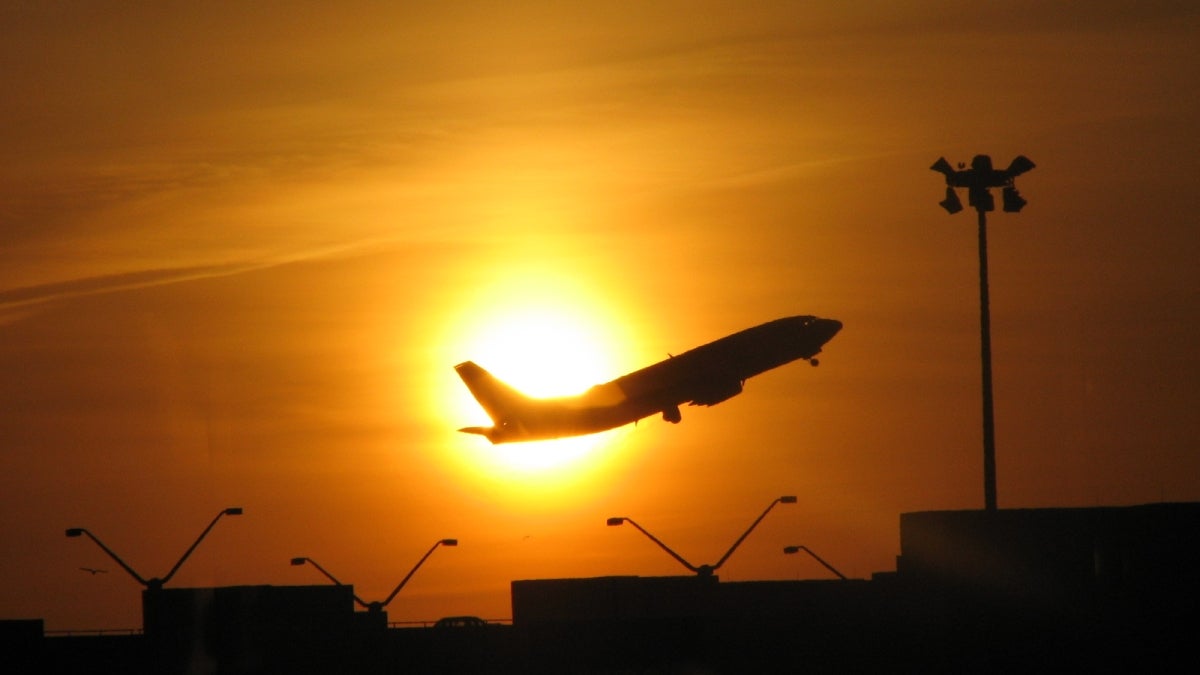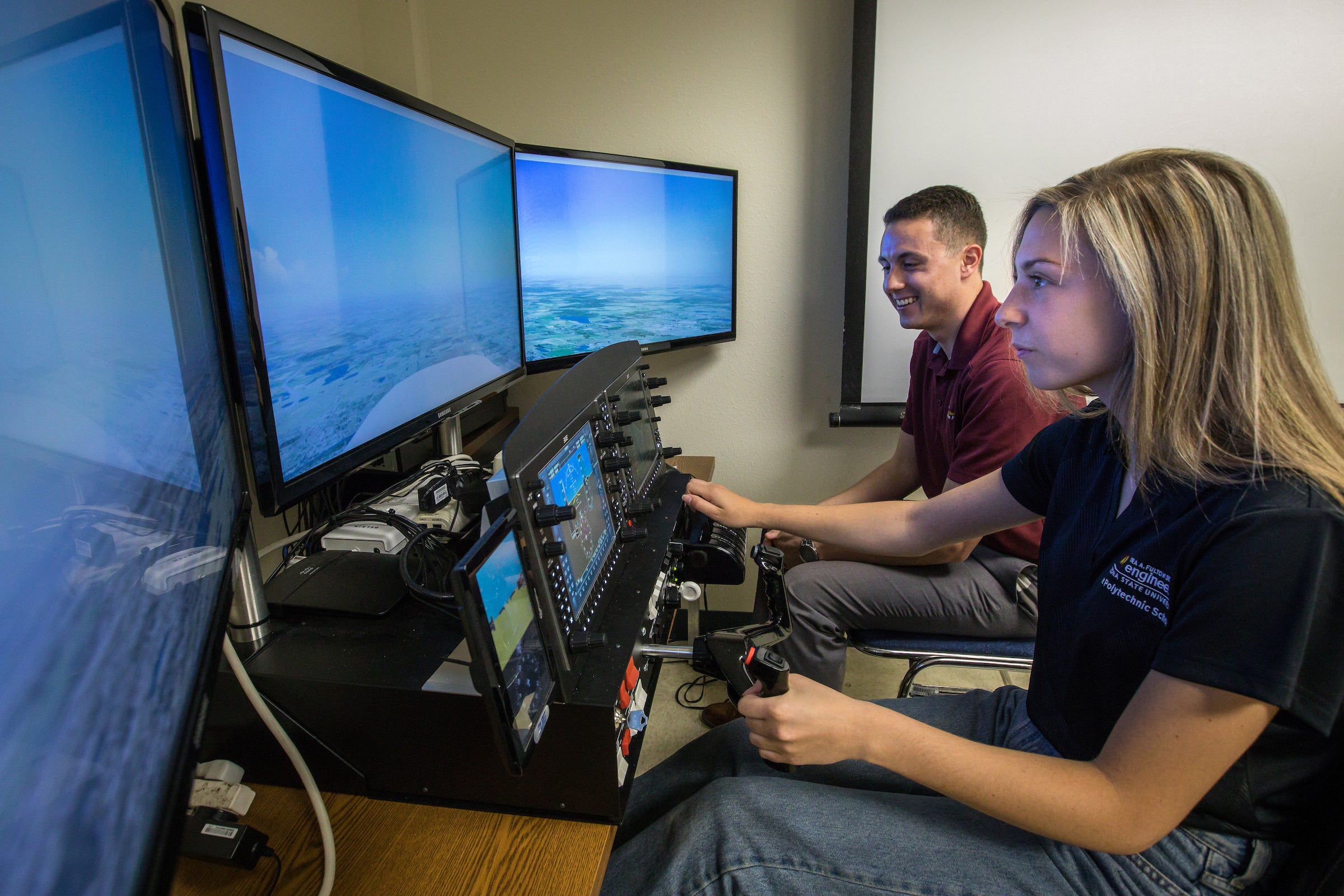Editor's note: This story is being highlighted in ASU Now's year in review. To read more top stories from 2017, click here.
More than 40 flights in and out of Phoenix Sky Harbor International Airport were canceled Tuesday afternoon because of record heat.
Temperatures were expected to hit a record-busting 120 degrees, grounding small regional carriers.
Why can’t some planes fly when it’s scorching? ASU Now talked to Marc O’Brien, chair of Arizona State University’s aviation program in the Polytechnic School, which trains pilots, drone operators, air traffic controllers and airport managers.
The answer is physics. When it’s as hot as 120, the air is thinner. Simply put, the engines have less air to grab onto. They don’t perform as well, the plane climbs more slowly, and it needs a longer runway to hit takeoff speed.
“It makes the aircraft less efficient,” O’Brien said.
Every make and model of aircraft has its own performance data. Pilots use that data on every flight: takeoff distance, cruise performance, landing distances and so on.
“If you have something too extreme and it’s outside the parameters, it can’t go,” O’Brien said. “The manufacturer would have to assure the aircraft can operate under those conditions.”
It’s something all students in the program learn right off the bat, he said.
“All of our aviation students learn how to calculate aircraft performance,” O’Brien said. “Our student pilots calculate aircraft performance before every flight.”
ASU professional flight sophomore Carlee Cramer practices in a flight simulator with senior Trevor Cardey at the Polytechnic campus on Tuesday. Students getting their hours in the single-engine Cessna 172s know they have to take the 6 a.m. class to be assured of air time. The cockpits get too hot by 9 a.m. with no air-conditioning. Photo by Charlie Leight/ASU Now
Should the average traveler at Sky Harbor today be worried?
Only about “finding a cool place to wait around until you can get on that rescheduled flight,” he said.
If there’s the slightest iota of danger, you’re not going to fly.
“That’s the thing we should all be focused on: Both FAA regulations and airline procedures and standardization all are designed to keep people safe,” O’Brien said. “When you get to an extreme, you don’t want to push the envelope.”
Silver lining: If your flight did get canceled, there’s plenty of room at Valley resorts, which are often deeply discounted this time of year.
Top photo by Sara Haj-Hassan/Freeimages.com
More Science and technology

ASU professor honored with prestigious award for being a cybersecurity trailblazer
At first, he thought it was a drill.On Sept. 11, 2001, Gail-Joon Ahn sat in a conference room in Fort Meade, Maryland. The cybersecurity researcher was part of a group that had been invited…

Training stellar students to secure semiconductors
In the wetlands of King’s Bay, Georgia, the sail of a nuclear-powered Trident II Submarine laden with sophisticated computer equipment juts out of the marshy waters. In a medical center, a cardiac…

ASU startup Crystal Sonic wins Natcast pitch competition
Crystal Sonic, an Arizona State University startup, won first place and $25,000 at the 2024 Natcast Startup Pitch Competition at the National Semiconductor Technology Center Symposium, or NSTC…

